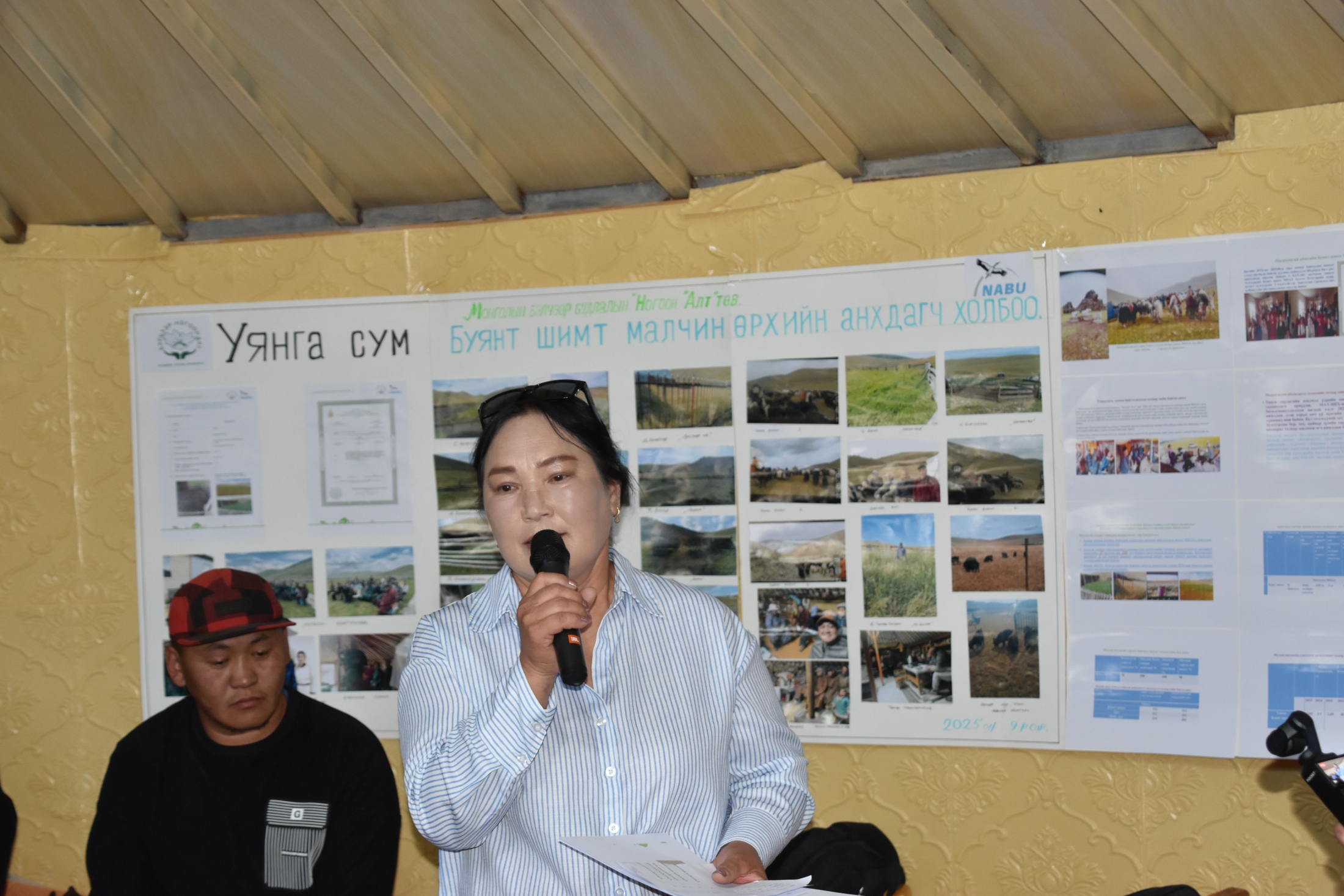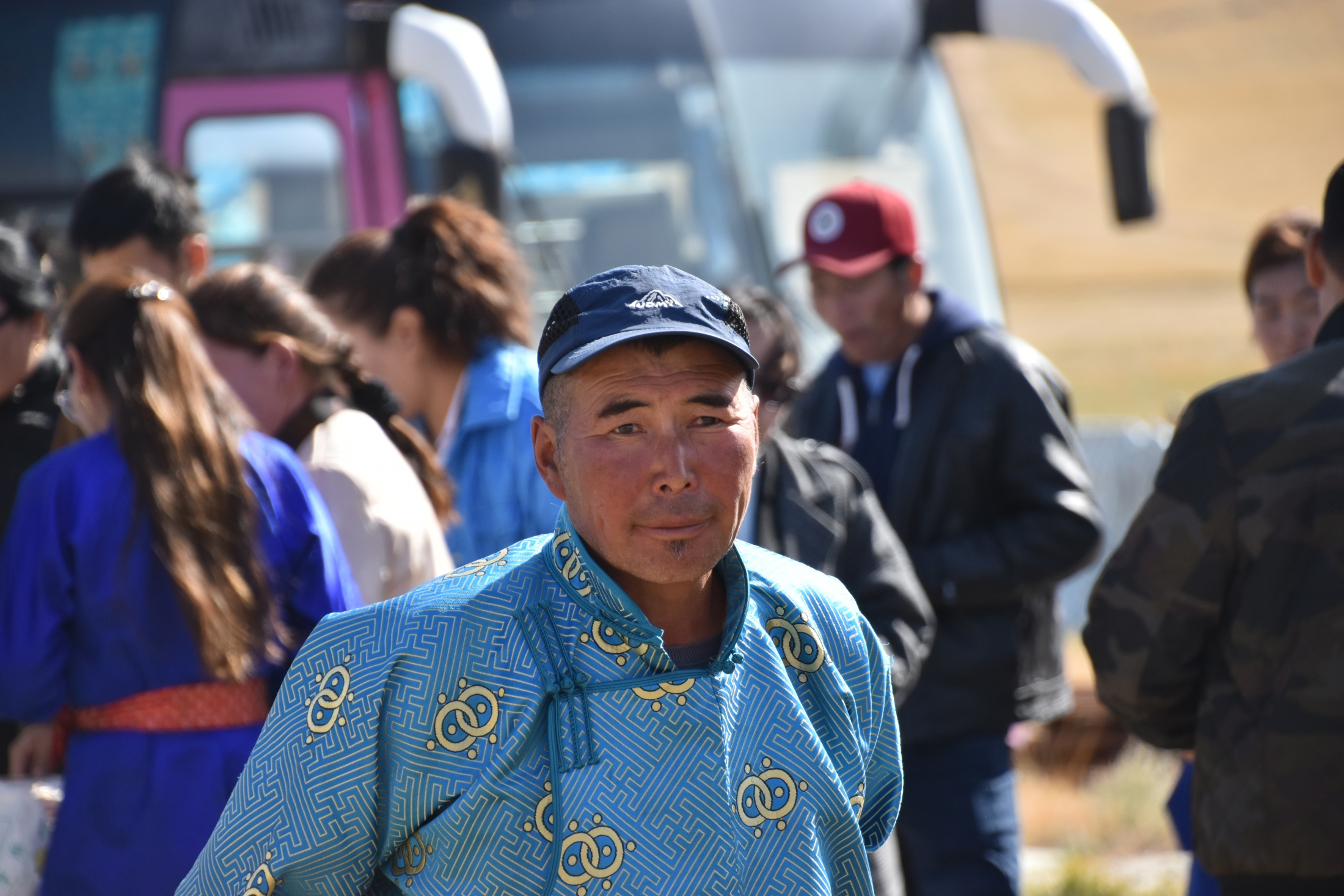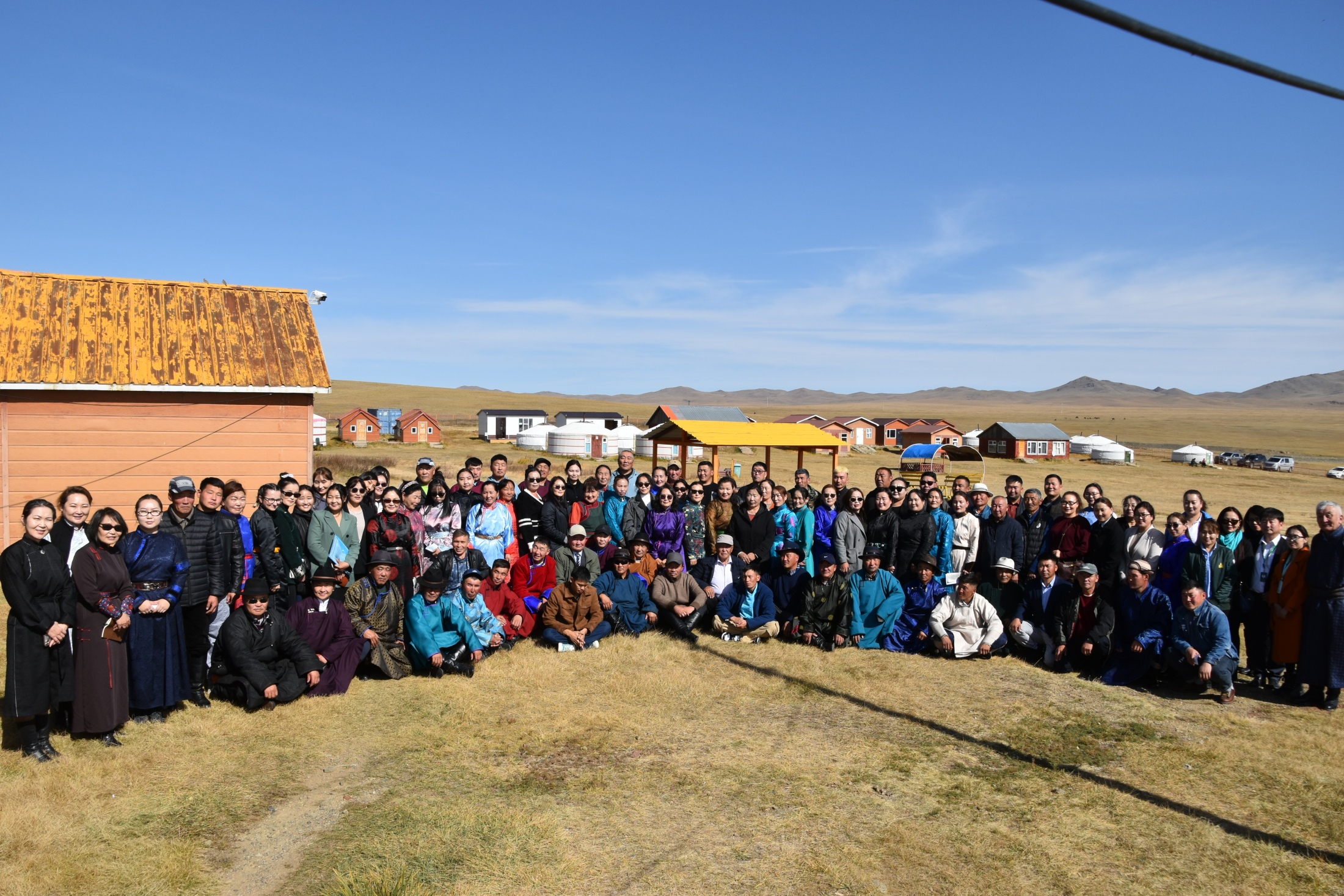The 8th Mongolian National Rangeland Forum was held under the theme “Participation of Herder Women and Youth in Ensuring the Sustainable Development of the Livestock Sector
The 8th Mongolian National Rangeland Forum was held under the theme “Participation of Herder Women and Youth in Ensuring the Sustainable Development of the Livestock Sector

On September 23–24, 2025, the 8th Mongolian National Rangeland Forum took place at the in Taragt soum, Uvurkhangai aimag, under the theme “Participation of Herder Women and Youth in Ensuring the Sustainable Development of the Livestock Sector.” The forum brought together more than 140 participants, including representatives of government agencies, international projects and programs, local administrations, herder group representatives, primary herder household associations from aimags and soums, and national and international NGOs. Over 20 presentations were delivered, four group discussions were organized, and more than 10 poster sessions were displayed.

The forum was sponsored by the German Agency for International Cooperation (GIZ), the Nature and Biodiversity Conservation Union, Germany, Vétérinaires et Agronomes Sans Frontières (AVSF) through the StepEcoLab-II Project, and supported by the Ministry of Food, Agriculture and Light Industry (MOFALI), the Agency for Land Management, Geodesy and Cartography, the Uvurkhangai Aimag Governor’s Office, the Taragt Soum Governor’s Office, Mongolian University of Life Sciences (MULS), The Nature Conservancy (TNC), Wildlife Conservation Society (WCS), Ecofarm, ASPIDS, ADAPT, ZSL, Khan Bank, State Bank, and primary herder associations from 19 aimags.
The forum was distinctive in addressing the pressing issues of women herders and young herders and was organized in anticipation of the International Year of Rangelands and Pastoralists in 2026. Furthermore, two women herders were selected to participate in the Asian Regional Conference of Women Pastoralists.

The forum concluded with a set of 22 recommendations, addressed to the Government of Mongolia, central administrative bodies responsible for agriculture and social protection, local self-governing organizations, governors at all levels, primary herder household associations, and herder self-governing organizations:
Policy recommendations:
- Urgently improve accompanying regulations and legal frameworks for the recently adopted law allowing herder household primary associations to make contracts for the rangeland use.
- Develop and implement a gender policy for the agricultural sector to strengthen the participation of women and youth in the sustainable development of livestock husbandry.
- Conduct baseline studies on herder health and implement short, medium, and long-term policies and programs.
- Provide state financial support to livestock breeding and technology units.
- Implement or improve a traceability system for livestock products to ensure food safety.
- Amend the law on livestock head tax.
- Incorporate pasture, herder participation, and gender issues into soum governor’s action plans and soum-level medium and long-term development strategies.
Through stakeholder participation and support:
- Improve livestock feed resources and disseminate innovative technologies aimed at improving breeds.
- Increase funding sources for green loans for agricultural producers.
- Enhance herders’ financial literacy.
- Implement programs for tourism, handicrafts, and product development.
- Ensure local government oversight and support in introducing the “Responsible Nomad” code of practice for sustainable development
- Support the development of businesses led by young and women herders, facilitate the marketing of members livestock products, and implement climate adaptation and mitigation measures such as pond construction and haymaking, in cooperation with local governmental and non-governmental organizations.

Participants called for Mongolia to meet its commitments under the Paris Agreement of the UN Framework Convention on Climate Change within the target period, and in line with the UN General Assembly’s declaration of 2026 as the International Year of Rangelands and Pastoralists, to take an active leading role in reducing the impacts of climate change, achieving the UN Sustainable Development Goals, and preserving and passing on to future generations the nomadic heritage and environmentally friendly pastoral traditions.

